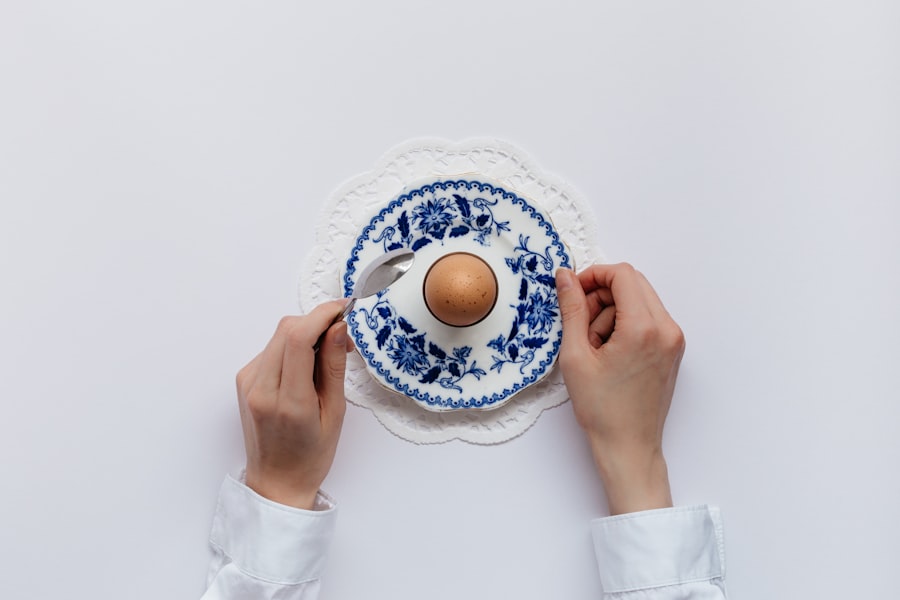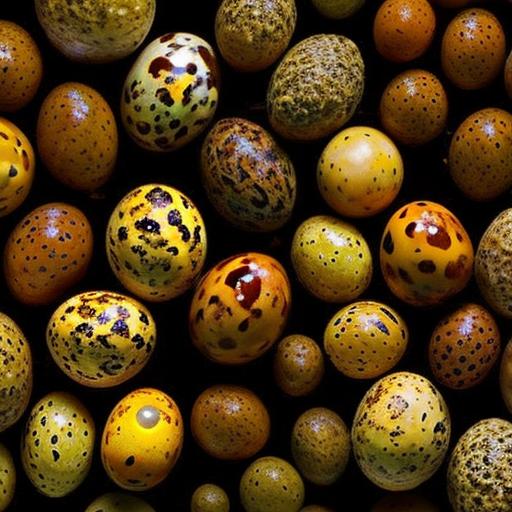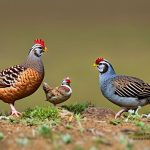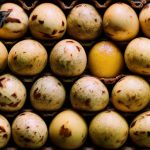Quail eggs have been a popular delicacy in many parts of the world for centuries. They are smaller in size compared to chicken eggs, but they pack a powerful punch when it comes to nutritional value. Quail eggs are rich in protein, vitamins, and minerals, making them a healthy addition to any diet. They are also known for their delicate flavor and creamy texture, making them a favorite among food enthusiasts and chefs alike.
Quail eggs are not only delicious but also versatile. They can be used in a variety of dishes, from salads and appetizers to main courses and desserts. In addition to their culinary uses, quail eggs are also believed to have numerous health benefits, including boosting the immune system, improving skin health, and aiding in weight loss. With their small size and unique flavor, quail eggs have become a popular ingredient in gourmet cooking and are often featured in high-end restaurants around the world.
Key Takeaways
- Quail eggs are small, nutritious eggs that are gaining popularity in the culinary world.
- Fresh quail eggs should be stored in the refrigerator at a consistent temperature.
- To determine the freshness of quail eggs, perform a simple float test in water.
- Quail eggs can be stored for up to 5 weeks in the refrigerator.
- Preserving fresh quail eggs can be done through pickling or coating them in mineral oil.
Storage of Fresh Quail Eggs
When it comes to storing fresh quail eggs, there are a few important factors to consider in order to maintain their quality and freshness. The first step is to ensure that the eggs are clean and free from any dirt or debris. It’s important to handle quail eggs with care, as they have delicate shells that can easily crack or break. Once the eggs are clean, they should be stored in a cool, dry place away from direct sunlight. It’s best to store quail eggs in the refrigerator, as this will help to maintain their freshness for a longer period of time.
Another important aspect of storing fresh quail eggs is to keep them in their original carton or container. This will help to protect the eggs from absorbing any strong odors or flavors from other foods in the refrigerator. It’s also important to store the eggs with the pointed end facing downward, as this will help to keep the yolk centered and prevent it from coming into contact with the air pocket inside the egg. By following these storage guidelines, you can ensure that your quail eggs stay fresh and delicious for as long as possible.
Determining Freshness of Quail Eggs
There are several methods for determining the freshness of quail eggs. One of the most common ways is to perform the float test. To do this, simply fill a bowl with water and gently place the quail eggs into the water. Fresh eggs will sink to the bottom and lay flat on their sides, while older eggs will stand upright or float. This is because as an egg ages, the air pocket inside it becomes larger, causing it to float.
Another method for determining the freshness of quail eggs is to gently shake them next to your ear. Fresh eggs will make very little noise when shaken, while older eggs will produce a sloshing sound due to the larger air pocket inside. Additionally, you can also crack open an egg and examine the yolk and white. Fresh eggs will have a firm yolk and thick white, while older eggs will have a runny yolk and thin white.
How Long Can Quail Eggs be Stored
Quail eggs can be stored for a relatively long period of time if they are properly handled and stored. When kept in the refrigerator at a consistent temperature of around 40°F (4°C), fresh quail eggs can be stored for up to 5-6 weeks. It’s important to note that the shelf life of quail eggs can vary depending on how fresh they were when purchased and how they have been handled and stored.
If you plan on storing quail eggs for an extended period of time, it’s best to consume them within 2-3 weeks of purchase for optimal freshness. Additionally, it’s important to check the expiration date on the carton or container of quail eggs before purchasing them, as this will give you an idea of how long they can be stored before they start to lose their freshness.
Tips for Preserving Fresh Quail Eggs
There are several tips and tricks for preserving fresh quail eggs and extending their shelf life. One of the most important things to remember is to always handle quail eggs with care to prevent any cracks or damage to the delicate shells. It’s also important to store quail eggs in their original carton or container in the refrigerator, as this will help to protect them from absorbing any strong odors or flavors from other foods.
Another tip for preserving fresh quail eggs is to avoid washing them until you are ready to use them. The natural protective coating on the eggshell helps to keep out bacteria and moisture, so washing them can actually reduce their shelf life. If you do need to wash quail eggs, it’s best to use warm water and a mild detergent, and then dry them thoroughly before storing them in the refrigerator.
Uses for Quail Eggs

Quail eggs are incredibly versatile and can be used in a wide variety of dishes and recipes. They are often used as a garnish for salads, appetizers, and canapés due to their small size and delicate flavor. Quail eggs can also be hard-boiled and used as a topping for pizzas or added to sandwiches and wraps for an extra protein boost.
In addition to their use as a garnish or topping, quail eggs can also be used as a main ingredient in many dishes. They can be scrambled, poached, or fried and served alongside breakfast favorites such as bacon, sausage, and toast. Quail eggs can also be used in baking and are often featured in recipes for cakes, pastries, and custards.
Conclusion and Final Thoughts
In conclusion, quail eggs are a delicious and nutritious addition to any diet. With their rich flavor and creamy texture, they can be used in a wide variety of dishes and recipes. By following proper storage guidelines and handling quail eggs with care, you can ensure that they stay fresh and delicious for as long as possible.
Whether you enjoy them as a garnish for salads and appetizers or as a main ingredient in your favorite dishes, quail eggs are sure to add a unique touch to your culinary creations. With their numerous health benefits and versatility in the kitchen, quail eggs have become a popular choice among food enthusiasts and chefs around the world. So next time you come across these tiny treasures at your local market, don’t hesitate to pick up a carton and start experimenting with all the delicious ways you can incorporate quail eggs into your cooking repertoire.
When it comes to keeping fresh quail eggs, it’s important to understand the best practices for maintaining their quality. In a related article on PoultryWizard, “Do Quails Sit on Their Eggs?” explores the natural incubation behavior of quails and how it impacts egg production. Understanding the behavior of quails can provide valuable insights into optimizing egg production and ensuring the freshness of your quail eggs. For more tips on creating an optimal environment for poultry, check out their article on converting a shed to a chicken coop and portable chicken coops.
FAQs
What is the shelf life of fresh quail eggs?
Fresh quail eggs can be kept at room temperature for up to 2 weeks. If refrigerated, they can last for up to 2 months.
How should fresh quail eggs be stored?
Fresh quail eggs should be stored in a cool, dry place away from direct sunlight. If refrigerated, they should be kept in their original carton to prevent absorption of strong odors.
How can you tell if a quail egg is still fresh?
To check the freshness of a quail egg, you can perform the water test. Place the egg in a bowl of water – if it sinks and lays flat on its side, it is very fresh. If it stands upright or floats, it is not fresh and should be discarded.
Can you freeze fresh quail eggs?
Yes, fresh quail eggs can be frozen for up to 1 year. It is recommended to crack the eggs into a freezer-safe container, gently beat them, and then freeze.
Are there any health risks associated with consuming quail eggs?
Quail eggs are generally safe to consume, but like all eggs, they can carry the risk of salmonella. It is important to handle and cook quail eggs properly to reduce the risk of foodborne illness.
Meet Walter, the feathered-friend fanatic of Florida! Nestled in the sunshine state, Walter struts through life with his feathered companions, clucking his way to happiness. With a coop that’s fancier than a five-star hotel, he’s the Don Juan of the chicken world. When he’s not teaching his hens to do the cha-cha, you’ll find him in a heated debate with his prized rooster, Sir Clucks-a-Lot. Walter’s poultry passion is no yolk; he’s the sunny-side-up guy you never knew you needed in your flock of friends!







